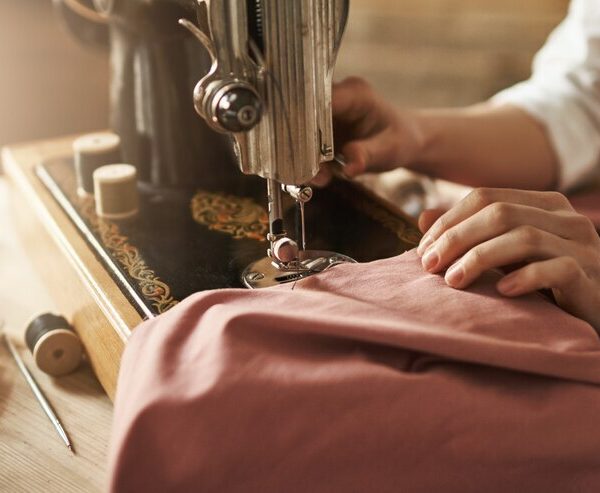For a moment let’s think about the great ocean but not as the beautiful blue thing you see in commercials or the view from above, just think about the incredible amount of plastic and other waste taking over our oceans. Trash is being eaten by marine life and has entered every level of the food chain — even ending up in the seafood on our plates.
Time to think about what it is doing to us and all life on this planet.
Did you know? Textiles are the second biggest polluting industry. The average life span of a garment is roughly three years, and so, textiles generate a huge amount of waste. Five percent of all global landfills are being taken up by dumped textile waste.
Currently, the short lifecycle of apparel product due to rapid fashion cycles and increased buying power of Indian consumers in urban areas is resulting in significant amounts of post-consumer textile waste in the form of used clothing or even second-hand clothing
The pre-consumer waste produced during the industrial processing of textiles by the manufacturer includes scraps, damaged or defective material samples, fabric selvages, and leftover fabric from the cutting process. On average, about 15 percent of the fabric used in garment production is cut, discarded, and wasted. The fabrics that are made from 100 percent degradable material like cotton, linen, silk, hemp are recycled into compost, or up-cycled into a value-added product. Synthetic textiles can be up-cycled into composites and building blocks to be used in construction or soundproofing applications.
As in economies, it is said resources are LIMITED and the needs are UNLIMITED but unfortunately, now trash is unlimited and the idea of recycling is limited. It does break my heart to say that recycling of textiles was a domestic craft in India and currently there are textile clusters and small-scale industries like NGOs to work on second-hand imported clothing. These clusters also develop a range of products like recycled yarns, doormats, prayer rugs, blankets, and bed linen. The leftover garment pieces are also sold as industrial wipers for the paints, chemicals, and construction industries, for both local and international buyers in Japan and Australia, but there are limited studies to evaluate the channels of recycling of post-consumer apparel waste in India
The NGOs working with post-consumer apparel can be further classified according to the way they use the donated clothes. These NGOs helps in reuse, recycle and give these post consumer textiles to the needy people.
These NGOs contribute to sustainability by
- Partnering with slums and donate to people in need
- Partnering with homes and orphanages; donate to children and people with need at these homes
- working towards relief and shelter, donate to people in need after natural calamities
- Partnering with Artisans who recycle products like rugs, mats, bags, sanitary napkins, etc for the rural sector
- providing a livelihood and employment for lots of people who are underprivileged
Almost half of the population in India would like to discard the clothes that are no more in use. There is a lack of awareness on the channels available for a donation of used clothing, though most of the people are willing to donate. The channels of post-consumer recycling of clothes are mostly NGOs who use it for charity or up-cycle it to new products using a community of artisans, who work for their livelihood.
Many other channels involve the small-scale industries that convert the post-consumer apparel waste to fibers and yarns. The fibers from the shredded clothing are generally used as fillers for mattresses, pillows, cushions, etc. in the unorganized sector or converted to recycled yarns.
A detailed study needs to be undertaken to evaluate the percentage of clothing that follows each of these channels in India. Additionally organized channels of recycling also need to be developed by the private labels to prevent clothing from being discarded in the waste and to encourage efficient recycling of post-consumer apparel in India.
so, what can be done ?
DONATE TO THE RIGHT HANDS TO WITNESS THE CHANGE. Happieesouls delivers your donations directly to the right local NGO partner in need.
If you want to register your NGO at HappieeSouls, please write to me at mega_sri@happieesouls.com




